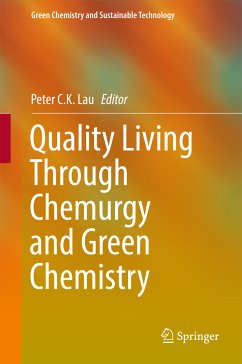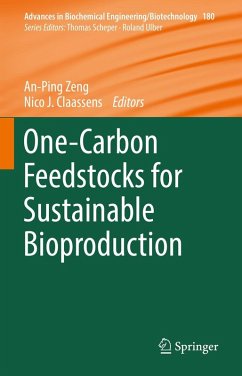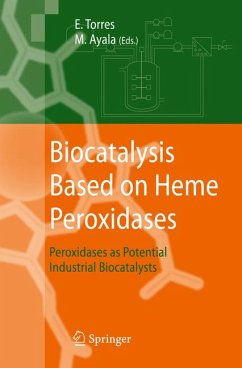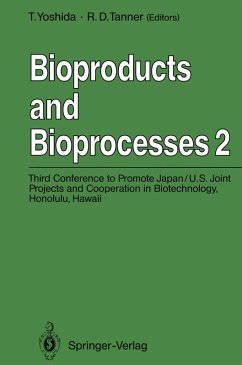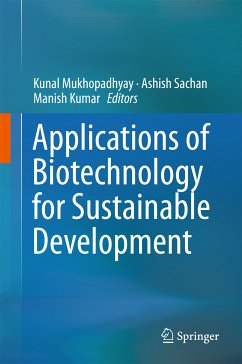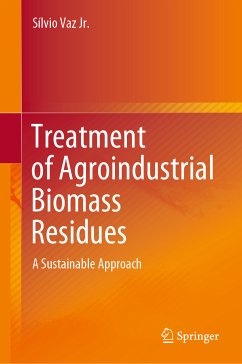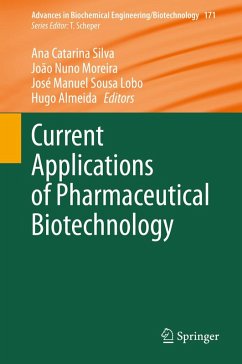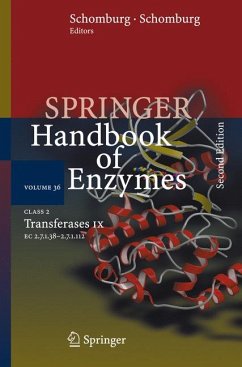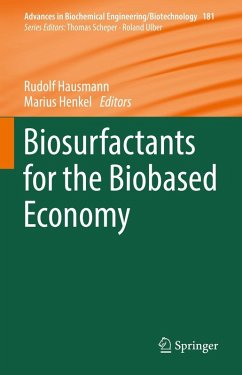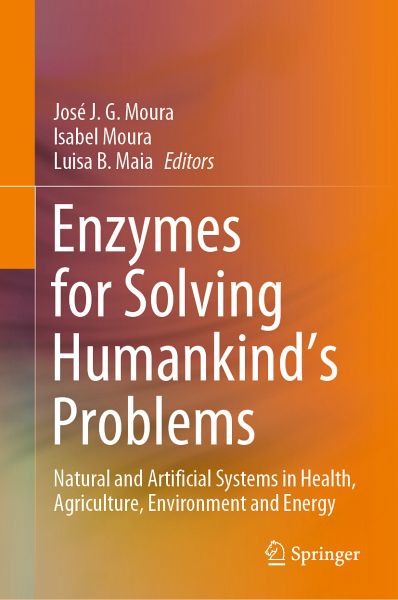
Enzymes for Solving Humankind's Problems (eBook, PDF)
Natural and Artificial Systems in Health, Agriculture, Environment and Energy
Redaktion: Moura, José J. G.; Maia, Luisa B.; Moura, Isabel
Versandkostenfrei!
Sofort per Download lieferbar
112,95 €
inkl. MwSt.
Weitere Ausgaben:

PAYBACK Punkte
56 °P sammeln!
This book presents specific key natural and artificial systems that are promising biocatalysts in the areas of health, agriculture, environment and energy. It provides a comprehensive account of the state of the art of these systems and outlines the significant progress made in the last decade using these systems to develop innovative, sustainable and environmentally friendly solutions.Chapters from expert contributors explore how natural enzymes and artificial systems tackle specific targets such as: climate change, carbon footprint and economy and carbon dioxide utilisation; nitrogen footpri...
This book presents specific key natural and artificial systems that are promising biocatalysts in the areas of health, agriculture, environment and energy. It provides a comprehensive account of the state of the art of these systems and outlines the significant progress made in the last decade using these systems to develop innovative, sustainable and environmentally friendly solutions.
Chapters from expert contributors explore how natural enzymes and artificial systems tackle specific targets such as: climate change, carbon footprint and economy and carbon dioxide utilisation; nitrogen footprint and fixation and nitrous oxide mitigation; hydrogen production, fuel cells and energy from bacteria; biomass transformation and production of added-value compounds, as well as biosensors development.
This book provides an important and inspiring account for the designing of new natural and artificial systems with enhanced properties, and it appeals not only to students and researchers working in the fields of energy, health, food and environment, but also to a wider audience of educated readers that are interested in these up-to-date and exciting subjects.
Chapter "Carbon Dioxide Utilisation-The Formate Route" is available open access under a Creative Commons Attribution 4.0 International License via link.springer.com.
Chapters from expert contributors explore how natural enzymes and artificial systems tackle specific targets such as: climate change, carbon footprint and economy and carbon dioxide utilisation; nitrogen footprint and fixation and nitrous oxide mitigation; hydrogen production, fuel cells and energy from bacteria; biomass transformation and production of added-value compounds, as well as biosensors development.
This book provides an important and inspiring account for the designing of new natural and artificial systems with enhanced properties, and it appeals not only to students and researchers working in the fields of energy, health, food and environment, but also to a wider audience of educated readers that are interested in these up-to-date and exciting subjects.
Chapter "Carbon Dioxide Utilisation-The Formate Route" is available open access under a Creative Commons Attribution 4.0 International License via link.springer.com.
Dieser Download kann aus rechtlichen Gründen nur mit Rechnungsadresse in A, B, BG, CY, CZ, D, DK, EW, E, FIN, F, GR, HR, H, IRL, I, LT, L, LR, M, NL, PL, P, R, S, SLO, SK ausgeliefert werden.



